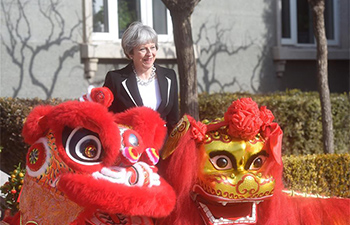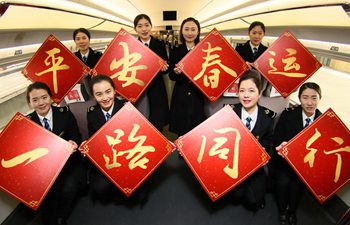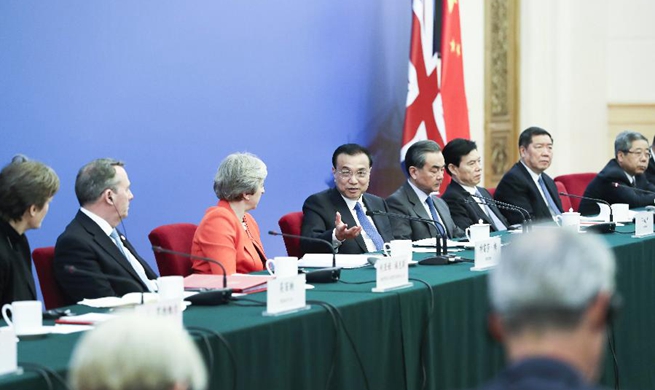BEIJING, Feb. 1 (Xinhua) -- Gone are kings and warring warriors, the unlikely rising star of China's gaming market is a frog.
From time to time, players tap their phones to check if their pet frog has eaten, slept, gone out to meet friends. Players are supposed to prepare their pet frog for an adventure that they, as caregivers, know nothing about.
The frog will leave home without notice and there is nothing a player can do other than just wait -- hours, days or weeks -- for a postcard to arrive.
The game, named Tabi Kaeru, which is Japanese for Travel Frog, has become a novelty and unexpectedly jumped into a gold mine in the gaming market: a game for young working adults, especially women, who want to relax while having fun.
"I've never played anything like this. The frog's simple lifestyle calms my nerves," said Yang Shuang, a female interpreter in Beijing. "I am learning to embrace a slower paced life."
China already has the world's largest gaming market, valued at 166 billion yuan (about 26 billion U.S. dollars) in 2016, a quarter of the world's total.
Last year, developers released 16,000 new mobile games. Many were role play or strategy games that required players invest a great deal of time and energy, if not money.
"Many involved intensive fighting that pits players against each other, such as the 'Honor of Kings,'" Yang said. "But Travel Frog is different. We are not playing to win. What attracts me most is the game's distance from the hustle and bustle of the real world."
There seems to be millions who agree with her.
Travel Frog, developed by Japanese company Hit-Point, was reportedly downloaded more than 3 million times in China within about two weeks during January.
It has topped the list of most downloaded free apps in Apple's China store for nearly two weeks.
"The frog is just like me -- living alone, eating alone and traveling alone," said Wu Wei, who works in Beijing. "Taking good care of my frog is just like taking good care of myself."
Some players said they feel empathy as the game reminds them of their childhood. Others said it helps them learn about parenthood.
The game also paints an ideal lifestyle for the young people who yearn for but do not have time to travel.
"I envy this frog," said Zhou Mingmin, a programmer at an internet company.
He said for the past two years he has not even dared to ask for leave. "Each time I receive a postcard from my frog, I wish I were him."
Social media has helped spread the craze. The popular messaging app WeChat has been awash with postcards sent from frogs. On microblogging platform Weibo, nearly 20,000 posts share the frogs' whereabouts and what it has brought home.
Gao Zhuancheng, a sociologist, said the game has become popular because it has won the hearts of a younger generation who feel lonely and squeezed by tight working schedules in big cities.
In 2014, Hit-Point rolled out Neko Atsume, or Kitty Collector, a mobile game about raising cats and it was all the rage, with over 19 million downloads. Numerous derivatives, such as toys, tableware, and cookbooks, ensued. A movie and a virtual reality mobile game with the same theme were launched last year.
The company is likely to follow suit in the case of Travel Frog, said Dong Xiaolei, executive director of China Insights Consultancy.
"Travel Frog may fade away in China, but loyal fans are likely to maintain their love for the frog by purchasing its derivatives," Dong said.
The rise of Travel Frog will provoke Chinese game producers to think more about the vacuum in the market. It is obvious that there is huge potential for this kind of game, experts said.
For some people, the game is nothing but a fad. "Travel Frog will vanish as soon as players lose interest in sharing postcards on social media," said a comment on Weibo.
















